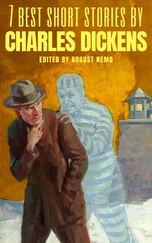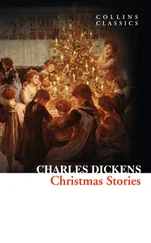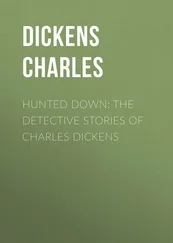Charles Dickens - Short Stories
Здесь есть возможность читать онлайн «Charles Dickens - Short Stories» весь текст электронной книги совершенно бесплатно (целиком полную версию без сокращений). В некоторых случаях можно слушать аудио, скачать через торрент в формате fb2 и присутствует краткое содержание. Жанр: Классическая проза, на английском языке. Описание произведения, (предисловие) а так же отзывы посетителей доступны на портале библиотеки ЛибКат.
- Название:Short Stories
- Автор:
- Жанр:
- Год:неизвестен
- ISBN:нет данных
- Рейтинг книги:4 / 5. Голосов: 1
-
Избранное:Добавить в избранное
- Отзывы:
-
Ваша оценка:
- 80
- 1
- 2
- 3
- 4
- 5
Short Stories: краткое содержание, описание и аннотация
Предлагаем к чтению аннотацию, описание, краткое содержание или предисловие (зависит от того, что написал сам автор книги «Short Stories»). Если вы не нашли необходимую информацию о книге — напишите в комментариях, мы постараемся отыскать её.
Short Stories — читать онлайн бесплатно полную книгу (весь текст) целиком
Ниже представлен текст книги, разбитый по страницам. Система сохранения места последней прочитанной страницы, позволяет с удобством читать онлайн бесплатно книгу «Short Stories», без необходимости каждый раз заново искать на чём Вы остановились. Поставьте закладку, и сможете в любой момент перейти на страницу, на которой закончили чтение.
Интервал:
Закладка:
'Grim they look, don't they?' said Pea, seeing me glance over my shoulder at the lights upon the bridge, and downward at their long crooked reflections in the river.
'Very,' said I, 'and make one think with a shudder of Suicides. What a night for a dreadful leap from that parapet!'
'Aye, but Waterloo's the favourite bridge for making holes in the water from,' returned Pea. 'By the bye – avast pulling, lads! – would you like to speak to Waterloo on the subject?'
My face confessing a surprised desire to have some friendly conversation with Waterloo Bridge, and my friend Pea being the most obliging of men, we put about, pulled out of the force of the stream, and in place of going at great speed with the tide, began to strive against it, close in shore again. Every colour but black seemed to have departed from the world. The air was black, the water was black, the barges and hulks were black, the piles were black, the buildings were black, the shadows were only a deeper shade of black upon a black ground. Here and there, a coal fire in an iron cresset blazed upon a wharf; but, one knew that it too had been black a little while ago, and would be black again soon. Uncomfortable rushes of water suggestive of gurgling and drowning, ghostly rattlings of iron chains, dismal clankings of discordant engines, formed the music that accompanied the dip of our oars and their rattling in the rowlocks. Even the noises had a black sound to me – as the trumpet sounded red to the blind man.
Our dexterous boat's crew made nothing of the tide, and pulled us gallantly up to Waterloo Bridge. Here Pea and I disembarked, passed under the black stone archway, and climbed the steep stone steps. Within a few feet of their summit, Pea presented me to Waterloo (or an eminent toll-taker representing that structure), muffled up to the eyes in a thick shawl, and amply great-coated and fur-capped.
Waterloo received us with cordiality, and observed of the night that it was 'a Searcher.' He had been originally called the Strand Bridge, he informed us, but had received his present name at the suggestion of the proprietors, when Parliament had resolved to vote three hundred thousand pound for the erection of a monument in honour of the victory. Parliament took the hint (said Waterloo, with the least flavour of misanthropy) and saved the money. Of course the late Duke of Wellington was the first passenger, and of course he paid his penny, and of course a noble lord preserved it evermore. The treadle and index at the toll-house (a most ingenious contrivance for rendering fraud impossible), were invented by Mr. Lethbridge, then property-man at Drury Lane Theatre.
Was it suicide, we wanted to know about? said Waterloo. Ha! Well, he had seen a good deal of that work, he did assure us. He had prevented some. Why, one day a woman, poorish looking, came in between the hatch, slapped down a penny, and wanted to go on without the change! Waterloo suspected this, and says to his mate, 'give an eye to the gate,' and bolted after her. She had got to the third seat between the piers, and was on the parapet just a going over, when he caught her and gave her in charge. At the police office next morning, she said it was along of trouble and a bad husband.
'Likely enough,' observed Waterloo to Pea and myself, as he adjusted his chin in his shawl. 'There's a deal of trouble about, you see – and bad husbands too!'
Another time, a young woman at twelve o'clock in the open day, got through, darted along; and, before Waterloo could come near her, jumped upon the parapet, and shot herself over sideways. Alarm given, watermen put off, lucky escape. – Clothes buoyed her up.
'This is where it is,' said Waterloo. 'If people jump off straight forwards from the middle of the parapet of the bays of the bridge, they are seldom killed by drowning, but are smashed, poor things; that's what THEY are; they dash themselves upon the buttress of the bridge. But you jump off,' said Waterloo to me, putting his fore– finger in a button-hole of my great-coat; 'you jump off from the side of the bay, and you'll tumble, true, into the stream under the arch. What you have got to do, is to mind how you jump in! There was poor Tom Steele from Dublin. Didn't dive! Bless you, didn't dive at all! Fell down so flat into the water, that he broke his breast-bone, and lived two days!'
I asked Waterloo if there were a favourite side of his bridge for this dreadful purpose? He reflected, and thought yes, there was. He should say the Surrey side.
Three decent-looking men went through one day, soberly and quietly, and went on abreast for about a dozen yards: when the middle one, he sung out, all of a sudden, 'Here goes, Jack!' and was over in a minute.
Body found? Well. Waterloo didn't rightly recollect about that. They were compositors, THEY were.
He considered it astonishing how quick people were! Why, there was a cab came up one Boxing-night, with a young woman in it, who looked, according to Waterloo's opinion of her, a little the worse for liquor; very handsome she was too – very handsome. She stopped the cab at the gate, and said she'd pay the cabman then, which she did, though there was a little hankering about the fare, because at first she didn't seem quite to know where she wanted to be drove to. However, she paid the man, and the toll too, and looking Waterloo in the face (he thought she knew him, don't you see!) said, 'I'll finish it somehow!' Well, the cab went off, leaving Waterloo a little doubtful in his mind, and while it was going on at full speed the young woman jumped out, never fell, hardly staggered, ran along the bridge pavement a little way, passing several people, and jumped over from the second opening. At the inquest it was giv' in evidence that she had been quarrelling at the Hero of Waterloo, and it was brought in jealousy. (One of the results of Waterloo's experience was, that there was a deal of jealousy about.)
'Do we ever get madmen?' said Waterloo, in answer to an inquiry of mine. 'Well, we DO get madmen. Yes, we have had one or two; escaped from 'Sylums, I suppose. One hadn't a halfpenny; and because I wouldn't let him through, he went back a little way, stooped down, took a run, and butted at the hatch like a ram. He smashed his hat rarely, but his head didn't seem no worse – in my opinion on account of his being wrong in it afore. Sometimes people haven't got a halfpenny. If they are really tired and poor we give 'em one and let 'em through. Other people will leave things – pocket-handkerchiefs mostly. I HAVE taken cravats and gloves, pocket-knives, tooth-picks, studs, shirt-pins, rings (generally from young gents, early in the morning), but handkerchiefs is the general thing.'
'Regular customers?' said Waterloo. 'Lord, yes! We have regular customers. One, such a worn-out, used-up old file as you can scarcely picter, comes from the Surrey side as regular as ten o'clock at night comes; and goes over, I think, to some flash house on the Middlesex side. He comes back, he does, as reg'lar as the clock strikes three in the morning, and then can hardly drag one of his old legs after the other. He always turns down the water– stairs, comes up again, and then goes on down the Waterloo Road. He always does the same thing, and never varies a minute. Does it every night – even Sundays.'
I asked Waterloo if he had given his mind to the possibility of this particular customer going down the water-stairs at three o'clock some morning, and never coming up again? He didn't think THAT of him, he replied. In fact, it was Waterloo's opinion, founded on his observation of that file, that he know'd a trick worth two of it.
'There's another queer old customer,' said Waterloo, 'comes over, as punctual as the almanack, at eleven o'clock on the sixth of January, at eleven o'clock on the fifth of April, at eleven o'clock on the sixth of July, at eleven o'clock on the tenth of October. Drives a shaggy little, rough pony, in a sort of a rattle-trap arm– chair sort of a thing. White hair he has, and white whiskers, and muffles himself up with all manner of shawls. He comes back again the same afternoon, and we never see more of him for three months. He is a captain in the navy – retired – wery old – wery odd – and served with Lord Nelson. He is particular about drawing his pension at Somerset House afore the clock strikes twelve every quarter. I HAVE heerd say that he thinks it wouldn't be according to the Act of Parliament, if he didn't draw it afore twelve.'
Читать дальшеИнтервал:
Закладка:
Похожие книги на «Short Stories»
Представляем Вашему вниманию похожие книги на «Short Stories» списком для выбора. Мы отобрали схожую по названию и смыслу литературу в надежде предоставить читателям больше вариантов отыскать новые, интересные, ещё непрочитанные произведения.
Обсуждение, отзывы о книге «Short Stories» и просто собственные мнения читателей. Оставьте ваши комментарии, напишите, что Вы думаете о произведении, его смысле или главных героях. Укажите что конкретно понравилось, а что нет, и почему Вы так считаете.










